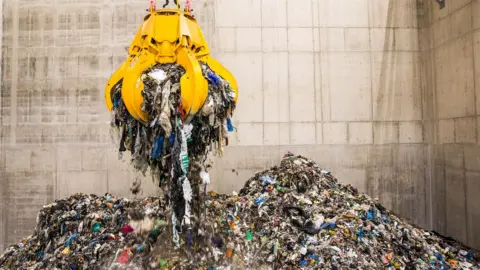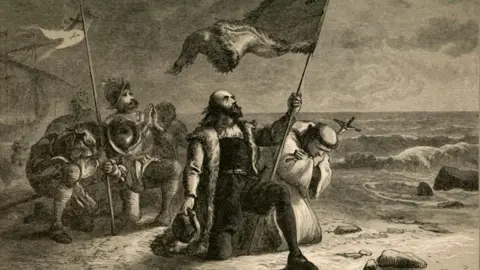Olawale Ajimotokan in Abuja
The Minister of Information and National Orientation Agency, Mohammed Idris has entreated Nigerians to have great zeal for the national brand.He made the appeal yesterday in Abuja at the formal unveiling of the Nigeria Reputation Management Group (NMRG).
Idris described the country’s brand reputation as one of its most invaluable assets, alongside its financial, natural and mineral resources.
He said that in spite of its challenges, the country can still build its reputation brand by carrying out a honest assessment of its weaknesses and strengths.“As you’re all aware, a country’s brand reputation is one of its core assets, alongside its financial and natural and mineral resources. However, the intangibility of brand reputation means that it is often not reckoned with or grossly underestimated in the accounting of a country’s primary assets.
“It is therefore important for Nigeria to take its national brand very seriously. I believe we can start by honestly assessing our strengths and weaknesses. Yes, we have our challenges and reputational weaknesses, but we also have significant strengths and untapped potential,” Idris said.
He listed one of the initiatives that determine the strength of a country as the national brand index saying: “Countries are ranked on that Index according to how they score on six primary indices, in the perceptions of respondents drawn from around the world.
He listed them as Exports, Governance, Culture, People, Tourism, and Immigration and Investment.
“Noteworthy is the fact that Japan steadily rose on that particular ranking, from 5th place in 2019, to 4th in 2020, 3rd in 2021, 2nd in 2022 and then 1st in 2023,” he stated.
He quoted Simon Anholt, the brain behind the ranking, saying there is a nexus between the intangible asset of national brand and tangible country characteristics like the ability to attract trade, investment, tourism, and talent.
“I see a self-reinforcing mechanism at play in this issue of national brand and reputation. A strong national brand attracts talent, tourists and investors and this combination in turn further strengthens the country, positioning it to attract even more positives.
“The reverse is also the case, a weak national brand will discourage investments and talent, depriving a country of what it needs for national development, an unfortunate scenario that further weakens perceptions of brand quality.
“In the area of culture, for example, Nigeria has one of the strongest brands in the world, especially on account of our music and our literature. Our films, fashion and food are also making impressive strides, and with more intentional support, can conquer the world just as boldly as our music is doing.“It is against this backdrop that this commendable new effort by the Nigerian Institute of Public Relations (NIPR) is emerging. I must really commend the leadership of the Institute, under the President and Chairman of Council, Dr. Ike Neliaku, for displaying strong and proactive leadership of the esteemed profession, “Idris stressed.
In his remarks, Minister of Foreign Affairs, Yusuf Tuggar called for proactive approach to address the country’s reputation challenges, calling on Nigerians to tell their own story in an honest and inspirational way.
“To address these challenges, Nigeria must embrace a proactive approach to reputation management. This begins with effective communication. We must tell our own story before others tell it for us, and we must ensure that the story we tell is both honest and aspirational.
“ National reputation is not about glossing over challenges or ignoring problems, but about framing those challenges within a broader narrative of progress, resilience and potential,” Tuggar said.
The minister said the image of any nation is not shaped solely by its leaders, diplomats, or businesses, but by the actions, attitudes, and behaviours of its citizens.
He described Nigerians, both at home and in the diaspora, as the primary ambassadors of the national brand, stressing every interaction, every social media post, and every business transaction contributes to how Nigeria is perceived globally.
” It is, therefore, essential that the government, the private sector, civil society and broader citizenry work together to foster a sense of pride and responsibility among all Nigerians. This approach is a key aspect of the Diaspora pillar of the Tinubu Doctrine of 4-D Diplomacy,” Tuggar said.
He said the country has been using the Technical Aid Corp (TAC) to great effect in pushing its sphere of influence by sending out Nigerian doctors, engineers and university lecturers as volunteers to African, Caribbean and Pacific countries free of charge, since 1987.
Idris Charges Nigerians to Rebrand Country, Build on Nation’s Strengths
The dash not to miss once-in-a-lifetime comet snap
 Jono KimberJono Kimber got a chance to take several photos of the comet in the skies above ShropshirePhotographers with an interest in the night sky have been treated to glimpses of a comet that last passed the Earth 80,000 years ago. But one snapper who captured the rarity risked missing out due to a more weekly event – taking his son to Scouts.
Jono KimberJono Kimber got a chance to take several photos of the comet in the skies above ShropshirePhotographers with an interest in the night sky have been treated to glimpses of a comet that last passed the Earth 80,000 years ago. But one snapper who captured the rarity risked missing out due to a more weekly event – taking his son to Scouts.
When Tsuchinshan-ATLAS was this way previously, Neanderthals were still alive. It meant that Jono Kimber, from Ellesmere in Shropshire, knew the margins of success were already tight as this visitor would not hang around. Tricky light, however, was threatening to make his brief window on Thursday even smaller.
Bad weather had ruined his chances on the previous three nights, so he threw his camera and tripod in the back of the car when he went to drop off his son.
He said he initially thought he may fare better on Thursday, after inspecting conditions through a window while having tea. But due to his family commitments he grew "really scared of missing it".
After dropping off his son, he said he "drove around a little bit" to find a good place to stop, eventually settling on a spot close to a main road. That put him, give or take, about 44 million miles (70 million km) away from the object, going by NASA maths.
Mr Kimber, a member of an online community with an interest in night sky photography, said he liked the location because he had seen other photographers using "nice open landscapes to give the sense of space and expanse" in their images.
That same night other people were taking photos of the impressive Hunter's Moon, but Mr Kimber said the light it was giving off was a hindrance for him, because it "causes a bit of haze".
And then… more family commitments. After taking 10 photos on long exposure, he had to dash off to collect, this time, his daughter.
But by then, he said, he was pleased with what he had achieved, also capturing, he added, Elon Musk's Starlink satellites travelling in a train across the sky.
 Julian CartwrightJulian Cartwright went out for a walk near his home to photograph the cometAnother Shropshire photographer who jumped at the chance to photograph the comet was Julian Cartwright from Clee Hill. But he too was not without challenges.
Julian CartwrightJulian Cartwright went out for a walk near his home to photograph the cometAnother Shropshire photographer who jumped at the chance to photograph the comet was Julian Cartwright from Clee Hill. But he too was not without challenges.
He said while his main interest was wildlife and landscape photography, the rarity of the comet made it irresistible.
"The aurora has been a highlight this year and when I heard about the comet it seemed daft not to go and have a look," he explained.
And so he "popped out for a walk" with his wife and in Dhustone, set up his camera, training it in the direction of Ludlow.
He said he was just in time, because "cloud completely obscured the comet a few minutes after getting the shot".
 Julian CartwrightJulian Cartwright's comet imagery in closeupFollow BBC Shropshire on BBC Sounds, Facebook, X and Instagram.
Julian CartwrightJulian Cartwright's comet imagery in closeupFollow BBC Shropshire on BBC Sounds, Facebook, X and Instagram.
Nations League- Northern Ireland batter Bulgaria, Spain sweep aside Serbia
Isaac Price scores hat-trick in 5-0 win over BulgariaPoland rescue dramatic 3-3 draw against CroatiaAgenciesTue 15 Oct 2024 17.47 EDTLast modified on Wed 16 Oct 2024 07.05 EDTShareIsaac Price’s hat-trick powered Northern Ireland to a stunning 5-0 win against Bulgaria that sent them top of their Nations League group.
After battering Belarus without reward in the opening 45 minutes of the goalless draw on Saturday, Northern Ireland took their frustrations out on Bulgaria as Price became the first Northern Ireland player to hit a treble since David Healy in a 4-1 win against Liechtenstein in March 2007.
Ronaldo-mania hits Hampden but Portugal held by battling ScotlandRead moreAfter the Standard Liège forward got the opening two, Brodie Spencer’s shot hit a post and rebounded in off the Bulgaria goalkeeper Dimitar Mitov to make it 3-0 at the break. Price completed his hat-trick with the best goal of the night, a rising shot from the edge of the box, before Josh Magennis came off the bench to hit a late fifth.
The last time Northern Ireland won 5-0 at home, George Best scored a hat-trick against Cyprus in April 1971. With Belarus and Luxembourg drawing 1-1 in Hungary, Northern Ireland sit top of Group C3 by one point before facing those two teams in their final games next month.
The European champions, Spain, claimed a place in the Nations League quarter-finals with a 3-0 home win against Serbia thanks to goals by Aymeric Laporte, Álvaro Morata and Álex Baena.
With two games left, Spain have secured at least a second-place finish as they top Group A1 with 10 points, three clear of second and six clear of Serbia, with Switzerland bottom on one point after a 2-2 home draw with second-placed Denmark.
Spain were missing several players from the team that defeated England 2-1 in the Euro 2024 final in July but still outclassed Serbia with 30 shots against three from the visitors. The Al Nassr defender Laporte gave the Spaniards the lead with a close-range header in the fifth minute and Morata, who missed a penalty in the 54th minute, extended Spain’s lead with a strike from just inside the box after 65 minutes.
Serbia’s Strahinja Pavlovic was shown a straight red card for a last-man foul on Mikel Oyarzabal on the edge of the area in the 78th minute and Baena curled the free-kick into the top corner to wrap up an easy victory.
 View image in fullscreenÁlex Baena completes the scoring for Spain with a fine free-kick. Photograph: Cristina Quicler/AFP/Getty ImagesDenmark’s Christian Eriksen created one goal and scored another to grab a draw against Switzerland.
View image in fullscreenÁlex Baena completes the scoring for Spain with a fine free-kick. Photograph: Cristina Quicler/AFP/Getty ImagesDenmark’s Christian Eriksen created one goal and scored another to grab a draw against Switzerland.
Switzerland went ahead when Remo Freuler reacted quickest in the box to lash a loose ball past goalkeeper Kasper Schmeichel in the 26th minute but the lead lasted just over a minute as Eriksen chipped a quick free kick into the path of Gustav Isaksen, who scored with a first-time left-foot shot.
skip past newsletter promotionSign up to Football Daily
Free daily newsletterKick off your evenings with the Guardian’s take on the world of football
Privacy Notice: Newsletters may contain info about charities, online ads, and content funded by outside parties. For more information see our Privacy Policy. We use Google reCaptcha to protect our website and the Google Privacy Policy and Terms of Service apply.after newsletter promotion
The brace of quickfire goals was greeted by a heavy fog rolling in across the pitch, but it did not prevent referee Umut Meler from seeing Switzerland’s Breel Embolo getting hacked down by Patrick Dorgu just before the break and Zeki Amdouni made no mistake from the penalty spot to make it 2-1 for the hosts. Eriksen came to the rescue with a cool, cushioned shot from Pierre-Emile Højbjerg’s lay-off in the 69th minute.
Poland fought back from two goals down to snatch a dramatic 3-3 draw with their visitors Croatia. Croatia, who fell behind early, had taken a stranglehold on the game with three goals in seven first-half minutes but were pegged back and then had the goalkeeper Dominik Livakovic sent off late-on.
The draw left Croatia second in Group A1 on seven points, three ahead of third-placed Poland. Portugal top the group with 10 points with Scotland bottom on one point.
Poland were aggressive from the start with the captain, Piotr Zielinski, scoring the opening goal in the fifth minute from a tight angle. The hosts, however, endured a dramatic collapse as Croatia scored three quick goals, as Borna Sosa’s volley in the 19th minute levelled the match before efforts from Petar Sucic and Martin Baturina put them in command.
Nicola Zalewski scored for Poland just before the break, and Sebastian Szymanski equalised in the 68th minute with a low shot into the left corner. The drama was not finished, however, as Croatia’s Livakovic was sent off for fouling Robert Lewandowski in the 76th minute, yet the hosts failed to capitalise.
Nigeria and the 2024 Nobel Prize
By Dakuku Peterside
Each year, the Nobel Prize emerges as a global celebration of human achievement, recognising exceptional contributions to progress across various fields such as Literature, Science, and Economics. It also celebrates the promotion and advancement of peace. The prestigious award symbolises the potential to advance knowledge and solve some of the world’s most pressing challenges. In 2024, the Nobel Prize in Economics was awarded to Daron Acemoglu, Simon Johnson, and James Robinson for their groundbreaking research into how political and economic institutions shape nations’ prosperity—or failure. Their work, particularly in the influential book “Why Nations Fail”, emphasises that the quality of their institutions largely determines the success of nations. This year’s award, a significant event in economics, brings to light the critical role institutions play in shaping the trajectory of nations, highlighting both the opportunities and challenges facing countries like Nigeria.
The research of Acemoglu, Johnson, and Robinson underscores the importance of inclusive institutions—those that provide broad access to resources and opportunities—for ensuring long-term economic success. In contrast, extractive institutions, which concentrate power and wealth in the hands of a few, often result in inequality, stagnation, and eventual collapse. This insight is particularly relevant to countries like Nigeria, where, despite abundant natural resources and a population of over 220 million, most live in poverty. According to the World Bank, more than 40% of Nigerians (about 110 million people) live below the poverty line, and another 25% are vulnerable to falling into poverty due to economic shocks. The Nobel Prize in Economics serves as a reminder that institutional reform is critical if Nigeria is to unlock its full potential.
The 2024 Nobel Prize highlights Nigeria’s unrealised potential and lack of global recognition in key areas like economics and science. Despite its vast oil wealth, the country remains impoverished and underdeveloped. In 2023, the petroleum industry accounts for about 5.5 percent of Nigeria’s GDP and for around 92 percent of the value of all exports, yet it has failed to translate into broad-based prosperity. According to the Nigerian National Bureau of Statistics (NBS), unemployment reached an all-time high of 33.3% in 2023, and youth unemployment stands at nearly 43%. These figures paint a picture of a country struggling to convert its immense natural wealth into tangible benefits for its people.
The 2024 Nobel Prize in Economics inadvertently draws attention to Nigeria’s institutional failures by focusing on institutions. In the book “Why Nations Fail”, Acemoglu, Johnson, and Robinson highlight Nigeria as an example of a country with immense potential but remains impoverished due to weak governance and ineffective institutions. However, their research also points out that if managed through effective institutions and good leadership, Nigeria’s resource wealth could lead to prosperity for the majority. This potential for change in Nigeria’s institutional landscape should inspire hope and optimism, as it suggests that with the right reforms, Nigeria can unlock its full potential. In a post-award interview on CNN, James Robinson, one of the three laureates, echoed these sentiments, emphasising Nigeria’s inability to create the institutional conditions necessary for development. He noted that Nigeria is not poor because of a lack of resources or talent but because of a lack of institutions and leadership capable of harnessing these resources for the benefit of all citizens. This critique places Nigeria under the global spotlight, prompting difficult questions about why a country with such potential remains economically stagnant.
One of the key lessons from the work of the 2024 Nobel laureates is the importance of the rule of law and the detrimental effects of corruption on national development. Societies with weak rule of law and corrupt institutions struggle to generate long-term economic growth because these systems prioritise the interests of elites over the broader population. This insight is particularly relevant to Nigeria, where corruption is deeply entrenched. According to Transparency International’s 2023 Corruption Perceptions Index (CPI), Nigeria ranks about 145th out of 180 countries, indicating widespread corruption across various levels of government and society.
Corruption in Nigeria has created a wealthy elite that thrives on exploiting the country’s resources for personal gain. In 2020, Nigeria lost approximately $18 billion to corruption in the oil sector alone, according to a report by the Nigeria Extractive Industries Transparency Initiative (NEITI). This staggering figure underscores the potential of Nigeria’s resources and the missed opportunities due to corruption. Instead of using oil revenues to improve infrastructure, education, or healthcare, a significant portion of Nigeria’s wealth is diverted to the pockets of corrupt officials. The pervasive nature of corruption has stifled innovation and entrepreneurship, preventing Nigeria from achieving the broad-based, sustainable economic growth needed to lift millions out of poverty.
Acemoglu, Johnson, and Robinson’s work also emphasises the stark difference between extractive and inclusive institutions. Extractive institutions, like those in Nigeria, concentrate wealth and power in the hands of a few, often leading to short-term economic growth but long-term instability and inequality. This has been particularly evident in Nigeria’s reliance on oil and how oil wealth has been mismanaged over the years. While oil has brought enormous wealth to a small group of elites, it has failed to create a diversified economy that can provide jobs and opportunities for the broader population. Nigeria’s over-reliance on oil has also made it vulnerable to fluctuations in global oil prices, leading to economic crises when prices fall.
On the other hand, inclusive institutions promote broad participation in economic and political life, creating opportunities for citizens to prosper. Countries with inclusive institutions, like Norway or South Korea, tend to experience sustained economic growth and political stability. In South Korea, for instance, a country with few natural resources, inclusive institutions have fostered innovation, resulting in its transformation into one of the world’s leading economies. Nigeria’s institutional failures, however, have left it unable to replicate such success.
Leadership is crucial in determining whether a country’s institutions are inclusive or extractive. Unfortunately, Nigeria’s leadership has often failed to build the institutions necessary for sustained growth. Instead, political leaders have prioritised their interests over the country’s long-term development. According to a 2019 report by the World Bank, the mismanagement of resources and poor governance have cost Nigeria over $300 billion in revenue losses over the past 30 years. This staggering figure, detailed in the report, which analysed the economic and political decisions made by Nigerian leaders, illustrates the impact of poor leadership on the nation’s development trajectory.
In addition to mismanagement, Nigeria’s colonial history and ethnic fragmentation further complicate its development path. The political and economic institutions established during colonial rule were designed for exploitation, not the benefit of the local population. These extractive systems continue influencing Nigerian governance today, with political elites using their positions to extract wealth from the economy. Nigeria’s ethnic diversity, while a potential strength, has often been manipulated by elites to fuel division and maintain control.
Rent-seeking behaviour, where individuals or groups extract wealth from the economy without contributing to productivity, has become entrenched in Nigeria’s political culture. There is a heavy reliance on rent-seeking in the oil sector rather than productive economic activities. This system discourages hard work and innovation, leaving the country stuck in a cycle of underdevelopment.
Another significant challenge facing Nigeria is the absence of a unifying national ideology. Without a cohesive vision for the future, political and business leaders have been able to exploit religious and ethnic divisions for their benefit. This lack of national unity weakens social cohesion and makes building the inclusive institutions necessary for sustained development difficult. Instead of working toward a common goal, Nigerian elites often use religion and ethnicity to maintain power, perpetuating inequality and deepening poverty. According to a 2021 report by the Brookings Institution, religious and ethnic divisions in Nigeria have been a significant driver of political violence and instability, further hindering the country’s development.
Good economic institutions protect property rights and guarantee the sanctity of contracts, which are key prerequisites for private sector investment and entrepreneurship. This lack of respect for the sanctity of contracts is one big gap in Nigeria, and the quality of our judiciary has not helped matters. One consequential service our democratic leaders can do to our country is to reform and strengthen the judiciary. Without it, all other reforms would be like pouring water on a duck’s back.
The insights provided by Acemoglu, Johnson, and Robinson offer Nigeria a way forward: institutional reform. By strengthening the rule of law, improving accountability, and fostering inclusive growth, Nigeria can reverse its course of underdevelopment and build a more prosperous and equitable society. The 2024 Nobel Prize critiques Nigeria’s current trajectory and a call to action for its leaders to implement the necessary reforms to unlock the country’s potential.
Summarily, the fate of nations, as highlighted by the 2024 Nobel laureates, is not determined by geography or culture but by the quality of their institutions and leadership. Nigeria’s persistent underdevelopment is not an inevitable outcome but a result of weak, extractive institutions. However, with the right leadership and a commitment to reform, Nigeria can break free from its vicious cycle of poverty and build a brighter future. Ultimately, the rapid development of Nigeria must be driven by its citizens and institutions, with leaders facilitating good governance and inclusive growth. Our country cannot continue to operate a political framework that often prioritises selfish personal, parochial and pecuniary interests over broader economic goals, limiting effective governance and implementation of growth strategies. The Nobel Prize in Economics reminds us that institutional change is possible—and that the time for Nigeria to act is now.
What I Ate in One Year by Stanley Tucci review – one bite too many-
The Hollywood star’s fourth food book starts well enough but quickly descends into bland anecdote, leaving his endearing charm and wit to season an empty plate
 Rachel CookeTue 15 Oct 2024 02.00 EDTShareI must admit that I was slightly surprised by the appearance of Stanley Tucci’s latest book. If I were to write on such a theme, the result would be the size of Samuel Richardson’s Clarissa or a Victorian family Bible, fit only to be wheeled around on a small trolley. His effort, though, has an outwardly quite sensible girth, and when you open it, white space abounds. Add to this the advisory subtitle “And Related Thoughts” (ah, so there’s some general pontificating involved, as well as musings on breakfast, lunch and dinner) and, even before you start reading, the buffet is beginning to seem a touch decimated.
Rachel CookeTue 15 Oct 2024 02.00 EDTShareI must admit that I was slightly surprised by the appearance of Stanley Tucci’s latest book. If I were to write on such a theme, the result would be the size of Samuel Richardson’s Clarissa or a Victorian family Bible, fit only to be wheeled around on a small trolley. His effort, though, has an outwardly quite sensible girth, and when you open it, white space abounds. Add to this the advisory subtitle “And Related Thoughts” (ah, so there’s some general pontificating involved, as well as musings on breakfast, lunch and dinner) and, even before you start reading, the buffet is beginning to seem a touch decimated.
What I Ate in One Year takes the form of a diary. When it opens in January 2023, Tucci, a Golden Globe and Emmy-winning actor, has just arrived in Rome to film Conclave, a papal thriller based on the novel by Robert Harris. Already missing his wife and children, he finds himself in a not-very-hospitable apartment hotel – an experience that is, alas, an integral part of life on the movie-making road (though someone from production has at least stocked his kitchen with pasta, tinned tomatoes and new knives). But never mind. On the plus side, there are his co-stars. One is Isabella Rossellini, who takes him to a restaurant her mother, Ingrid Bergman, loved, where a superfluity of nuns sings hymns to diners as they eat. Another is Ralph Fiennes, with whom Tucci shares a preference for – these sensitive guys – the softer, less tannic red wines of the Italian north.
For any book, this would be a goodish start. Isabella Rossellini! Ralph Fiennes! And immediately, too, the reader is reminded of Tucci’s particular charm, which has to do not only with his modesty and wit, but with the fact that he so smoothly and wisely balances fame and normality (many well-known actors, if not most, are unable – or unwilling – to pull off this trick). He likes to travel by train; he eats in restaurants alone; he doesn’t expect special treatment from waiters. It’s endearing to know he always takes his own food on set, in the expectation the catering will be dispiritingly bad, and his tastes are mostly simple. Among the longings he describes in What I Ate in One Year is for a salad of dandelion leaves, a dish that reminds him of his childhood, when the Italian immigrants of Westchester, New York, would collect them from along the parkways that led to Manhattan (while Tucci now lives in west London, his American parents are of Italian descent).
Isabella Rossellini takes him to a restaurant her mother, Ingrid Bergman, loved But after this, we’re on a sharply downward slide. Tucci has already written three bestselling food books, and my feeling at this point is that he has little left to say – at least on this subject. How many times must we hear how much he loves marinara sauce? Or artichokes? Or aubergine? There are only so many ways to say something is delicious. A lot of space is devoted in this volume to the food in the lounges of airports and the (I assume) business class cabins of planes, and while these passages are very boring indeed, even they’re not so yawn-inducing as the bits about security checks and delayed flights (personally, I would only be inclined to read a five-and-a-half page account of a round trip by air to Aspen if it were by a bona fide genius such as Craig Brown or Geoff Dyer – and I’d still pour a drink first). Tucci has designed a range of cookware, which is fine by me, even if I’m not in the market for a celebrity colander. But when he writes about it here, it seems shabby, whatever his intentions.
‘It’s all I think about’: Stanley Tucci on love, grief and pastaRead moreOccasionally, there are mentions of famous friends such as Jamie Dornan, Saoirse Ronan and Harry Styles (who likes the poet Rilke, apparently), all of whom come for dinner; Tucci and his brother-in-law, the actor John Krasinski, have an away day at Guy Ritchie’s country house, and it’s like something out of Ritchie’s (dire) Netflix series, The Gentlemen. But he’s ever clam-like about other people. In June, he has dinner at the River Cafe in London with Colin Firth and Tom Ford. “What we talked about is none of your business,” he writes, which strikes me as a somewhat bracing approach to reader relations. If you’re unwilling to invade anyone’s privacy, why bother to publish a diary at all? Naturally, I think I know the answer to this question (and so do you, too, probably). But as someone who has written for her entire living for more than two decades, I must squeeze a little lemon here. The impulses involved in this book on all sides feel depressingly cynical to me, for it’s thinner than freshly rolled fettuccine.
What I Ate in One Year by Stanley Tucci is published by Fig Tree (£20). To support the Guardian and Observer order your copy at guardianbookshop.com. Delivery charges may apply
CSOs Tackle AGF over EFCC, Others, Say You Can’t Fight Legal Battle With Illegality
Hundreds of Civil Society Organisations in Nigeria have kicked against what they described as an attempt by the Federal Government to disrespect the Nigerian Constitution and destroy the principles of federalism, using what it described as illegally constituted anti-graft agencies.
The CSOs, numbering about 200, said the attempt by the Federal Government to frustrate the hearing of the case instituted by 19 state governments, challenging the constitutionality of the Economic and Financial Crimes Commission and two others, was an indication that government was aware of the illegality of the anti-graft agencies and was trying to put pressure on the Supreme Court.
In a statement on Sunday, signed by Comrade Ifeanyi Odili, President, Campaign for Democracy; and Dr. Dapo Oluwole of the Transparency and Accountability Network, TAN, the activists faulted the Federal Government’s alleged pressure on the Supreme Court to dismiss a valid case, noting that they were fully in support of the fight against corruption but would not support the shenanigans of agencies working against the success of anti-graft efforts.
To them, the objections raised by the Attorney-General of the Federation in its application had no bearing with the case at hand because it did not address the issue at stake – constitutionality.
They called on the Judiciary to ignore harassment and intimidation by the Executive at the centre, saying a situation where successive administrations perceived the EFCC, in particular, as a tool for intimidation must stop in the interest of true Federalism.
According to them, this is the reason corruption has continued to fester rather than reduce.
The statement reads: “We, as a group of Civil Society Organizations across Nigeria, have deemed it fit to also intervene in the current debate and litigations regarding the constitutionality or otherwise of the establishment of the EFCC, NFIU, ICPC, etc.
“When it comes to constitutional matters, all issues of concern must be properly and thoroughly interrogated and resolved by the judiciary without any attempts by the Federal Government to throw its weight around. In a federation such as ours, the Federal Government is not superior to the federating units and cannot always breath down their necks especially on matters of concurrent jurisdiction.
“This is not to suggest that we are opposed to the establishment of anti-graft agencies. As a matter of fact, Nigeria needs effective anticorruption agencies to arrest the dangerous trends of the epidemic of corruption in Nigeria’s public and private spaces. Corruption is holding this country down. It is killing us and it must be terminated or, at least, subdued.
“However, you cannot fight a legal battle with an illegal body. To do so is to stand the very principle of justice on its head. If it is now discovered that the establishment of our anti-graft agencies was outside of the constitutional processes as stipulated by the 1999 Constitution of the Federal Republic of Nigeria as amended, then there is an urgent need for that aberration to be treated and healed before we proceed from here. Otherwise, all the actions of the anti-graft agencies would eventually amount to a nullity on the long run.
“In fact, this will be to the advantage of the Federal Government which can now operationalise the anti-graft agencies without let or hindrance. This is why it becomes so strange that the Federal Government is raising objections against something they should take a full advantage of.
“We see a deliberate design to force a fait accompli down the throat of the Judiciary in this matter by the Federal Government and this is not only unacceptable but will be resisted by all legal means, including public actions by CSOs. What exactly is the Federal Government afraid of? Why would you come against answers being demanded on constitutional questions?
“All the Federal Government needs do is to organize its best legal minds to engage this matter in court to its logical conclusion without this overly agitated attempt to shoot it down or frustrate it.
“The preliminary objection countersuit by the Federal Government is unnecessary, unwarranted, and fundamentally gratuitous. A student who has performed well should never be afraid of his or her paper to pass through reexamination. There are many constitutional issues that have been resolved by the judiciary and this will continue to happen.
“Why should anyone be opposed to this one? It is corruption to say that the constitutional issues surrounding anti-corruption agencies should not be determined by a court of competent jurisdiction. It is ridiculous to argue that the highest court in the land lacks jurisdiction over a constitutional issue. Which court can then entertain it?
“States or organizations or, even, individuals, as bona-fide citizens of this country, have a right to question the legality or constitutionality, as the case may be, of an activity or agency of government and they have a right to be heard. To stifle that right by legal subterfuge as the Federal Government is now attempting to do is absolutely reprehensible.
“We, as civil society organizations, are interested in finally resolving all constitutional issues regarding the establishment and operations of all government agencies, including the antigraft commissions.
“This should be allowed to run its course without complications.”
Burning rubbish now UK’s dirtiest form of power
 Getty ImagesBurning household rubbish in giant incinerators to make electricity is now the dirtiest way the UK generates power, BBC analysis has found.
Getty ImagesBurning household rubbish in giant incinerators to make electricity is now the dirtiest way the UK generates power, BBC analysis has found.
Nearly half of the rubbish produced in UK homes, including increasing amounts of plastic, is now being incinerated. Scientists warn it is a “disaster for the climate” – and some are calling for a ban on new incinerators.
The BBC examined five years of data from across the country, and found that burning waste produces the same amount of greenhouse gases for each unit of energy as coal power, which was abandoned by the UK last month.
The Environmental Services Association, which represents waste firms, contested our findings and said emissions from dealing with waste are “challenging to avoid”.
Nearly 15 years ago, the government became seriously concerned with the gases being produced from throwing away household rubbish in landfill and their contribution to climate change. In response, it hiked the taxes UK councils paid for burying waste.
Facing massive bills, councils turned to energy-from-waste plants – a type of incinerator that produces electricity from burning rubbish. The number of incinerators surged – in the past five years the number in England alone has risen from 38 to 52. About 3.1% of the UK’s energy comes from waste incinerators.
Devon councils burning 'majority of their waste'Government approves Portland waste incinerator
Christopher Columbus’s DNA to shed light on his origins
 RTVEDNA samples were taken in 2003 from the bones of Columbus – known in Spanish as Cristóbal Colón – and his son HernandoMore than five centuries after he re-shaped history by opening up the New World to European exploration, scientists say they are ready to reveal the truth about the origins of Christopher Columbus.
RTVEDNA samples were taken in 2003 from the bones of Columbus – known in Spanish as Cristóbal Colón – and his son HernandoMore than five centuries after he re-shaped history by opening up the New World to European exploration, scientists say they are ready to reveal the truth about the origins of Christopher Columbus.
The explorer reached the Americas in 1492 with the support of the Spanish Crown.
But although mainstream history books describe him as a native of Genoa, uncertainty has surrounded his provenance and many countries and regions have claimed him as their own.
Now, after more than two decades of research, scientists say they have enough evidence to solve the argument over the birthplace of Columbus.
In 2003, José Antonio Lorente, professor of forensic medicine at Granada University, and the historian Marcial Castro, exhumed what were believed to the remains of Columbus from Seville cathedral to take DNA samples. They also took DNA from the bones of his son, Hernando, and brother, Diego.
Since then they have compared the DNA with that of historical figures from different countries and regions in order to solve the mystery, using technological advances to ensure the veracity of the results.
 Getty ImagesColumbus and his expedition made landfall in 1492The answer is expected to be revealed in a documentary film due to be shown by Spain’s national broadcaster RTVE on Saturday, which is a national holiday marking Columbus’s arrival in the Americas.
Getty ImagesColumbus and his expedition made landfall in 1492The answer is expected to be revealed in a documentary film due to be shown by Spain’s national broadcaster RTVE on Saturday, which is a national holiday marking Columbus’s arrival in the Americas.
Ahead of the broadcast of the film, billed as “a documentary thriller”, the forensic team has revealed one result of its research: that the remains exhumed from Seville were indeed those of the explorer.
The Dominican Republic has long claimed that it is host to his body and a mausoleum is dedicated to him in the city of Santo Domingo.
In presenting this finding, Prof Lorente said that “we have been able to prove beyond all doubt, with new technology, the previously unconfirmed theory that the remains in Seville are those of Christopher Columbus”.
However, the team has said it is possible that some remains of the explorer are in the Dominican Republic, which did not co-operate with the project.
But Columbus’s birthplace is the biggest enigma.
 Getty ImagesResearchers say they have definitively confirmed that the bones buried in Seville's cathedral belong to Christopher ColumbusThe widely accepted theory is that he was born in Genoa, in 1451, to a family of wool weavers.
Getty ImagesResearchers say they have definitively confirmed that the bones buried in Seville's cathedral belong to Christopher ColumbusThe widely accepted theory is that he was born in Genoa, in 1451, to a family of wool weavers.
In 1492, he led an expedition backed by Spain’s Catholic Monarchs seeking to establish a new route to the Far East.
Instead, he reached the Caribbean, marking the beginning of a period of European contact with the Americas which would lead to conquest and settlement – and the deaths of many millions of indigenous people due to diseases and war.
It is widely accepted that Columbus died in 1506 in the northern Spanish city of Valladolid.
There have been an estimated 25 or so separate claims regarding where he was born, including from Poland, Scotland, Hungary and Scandinavia.
However, Prof Lorente’s team whittled the candidates down to eight possible birthplaces, in Spain, Portugal and Italy. The process has involved comparing Columbus’s DNA with that of individuals believed to be his relatives in these locations.
Tada, former chairman of India’s largest conglomerate Tata Group, dies at the age of 86
In an official statement released this evening, Tata Group has confirmed the passing of its former chairman, Ratan Tata, at the age of 86.
Reflecting on his remarkable tenure that spanned over 20 years, it’s clear that Tata played a pivotal role in positioning the Tata Group on the global stage with a series of significant acquisitions. Earlier today, sources close to him disclosed that he had been undergoing critical care at a hospital in Mumbai.
The Tata Group expressed their deep sorrow in a heartfelt statement, saying, “With deep sadness, we bid farewell to Mr. Tata, a truly extraordinary leader whose immeasurable contributions shaped not only the Tata Group but also the broader fabric of our nation.”
Indian Prime Minister Narendra Modi also paid tribute, characterizing Tata as “a visionary business leader with a compassionate soul, truly an extraordinary individual.”
As reported by the BBC, Ratan Tata was among India’s most globally recognized business personalities, leading the Tata Group—one of the country’s largest enterprises—with annual revenues surpassing $100 billion.
The Japan Airlines flight had an abnormality in its tail -enroute to Taiwan- and made an emergency return to Narita Airport.
On the afternoon of October 9th, an All Nippon Airways flight faced an unexpected turn of events shortly after takeoff. Originally set to depart from Narita International Airport in Tokyo for Taoyuan International Airport, the flight was compelled to make an emergency return due to a tail wing issue.
Can you tell us more about the specifics of the incident? Reports from JX News Agency and FlightAware indicate that Japan Airlines flight JL8663 took off at 11:50 AM. However, the crew noticed signs of a tail wing anomaly, leading them to make the decision to return to Narita.
What can you share about the timing of the return? The aircraft is anticipated to land back at Narita around 1:55 PM local time, which is 12:55 PM in Taiwan. It’s worth noting that this particular flight was operated on a Boeing 737-800.
